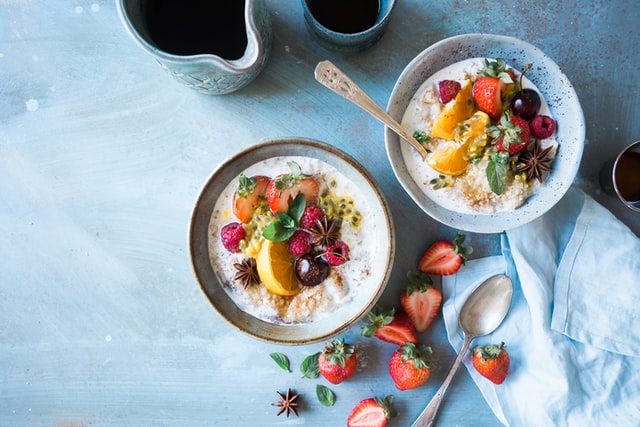One thing you hear a lot about is antioxidants. You can’t avoid hearing about antioxidants and how important they are, whether it’s from a doctor or an advertisement.
What are antioxidants, though? And why do they matter so much? We talked to registered dietician Nicole Hopsecger, RD, to find out what all the talk was about.
What are these things?
“Antioxidants are chemicals that are found naturally in foods and can protect against free radicals,” says Hopsecger. “Free radicals are normal byproducts of our bodies metabolism. They can also be caused by things like air pollution and smoke in the environment.”
The main benefit of antioxidants is that they can react with free radicals in a safe way, stopping damage to cells before it happens. Hopsecger says, “In short, antioxidants fight free radicals.”
“Free radicals can hurt body cells by changing the DNA of a cell or by changing the membrane of a cell,” says Hopsecger. “This interaction between free radicals and the body is called oxidative stress, and it is often thought to be a factor in the increased risk of getting a chronic disease.”
Hopsecger says that the main benefit of antioxidants is that they fight free radicals, but there is also a second benefit.
“Indirectly, antioxidants help lower the risk of developing chronic diseases because they stop free radicals from damaging our cells,” says Hopsecger.
Antioxidants and your diet
Even though our bodies make some antioxidants, the best way to make sure you get enough is to eat certain foods.
Foods high in antioxidants
Hopsecger says the following are examples of antioxidants and the foods (and vitamin sources) where you can find them:
- Broccoli, Brussels sprouts, sweet potatoes, bell peppers, tomatoes, and citrus fruits are all good sources of vitamin C.
- Almonds, avocado, sunflower seeds, oatmeal, and legumes are good sources of vitamin E. (beans, lentils, split peas).
- Beta carotene: Apricots, cantaloupe, mangos, carrots, grapefruit and bell peppers.
- Eggs, tuna, salmon, brown rice, onions, and many other vegetables are good sources of selenium.
Hopsecger recommends a “rainbow diet” like many other doctors do to make sure you get all the nutrients your body needs.
A rainbow diet means eating fruits and vegetables of different colours, like green (broccoli or spinach), red (tomatoes or strawberries), orange (carrots or oranges), and yellow (bell peppers or banana). This ensures you consume a diverse range of vitamins, nutrients and, yes, antioxidants.
Antioxidants: What You Need to Know
Even though antioxidants are good for your health, there are a lot of myths about them and a lot of confusion about how to best include them in your diet.
No antioxidant can do everything by itself.
Hopsecger says, “We can’t count on a single antioxidant or nutrient to do all the work.” “We need a variety of those to stay healthy, and the best way to do that is to eat a healthy, balanced, and varied diet.”
Hopsecger says that each antioxidant works differently in our bodies and that no one antioxidant can do the job of several. In a similar way, she says that the idea of a “superfood” with more nutrients than other foods is a bit misleading.
“Superfoods tend to follow marketing trends,” she says, pointing out that kale and avocados have both become very popular in the past few years. Even though these foods are healthy, it’s more important to make sure you eat a wide range of foods, like the rainbow diet, than to focus too much on any one food.
Don’t depend on pills.
Hopsecger says that getting antioxidants into your body is good, but supplements may not be the best way to do it. “Studies don’t agree on whether supplements really help or, in some cases, do more harm than good,” she says.
“These can interact with other medicines you’re already taking, and if you take a lot of the same one, you’re not getting a wide range of benefits,” she says. “And these antioxidants may not work as well on their own if you don’t also get other nutrients from a well-balanced diet.”
